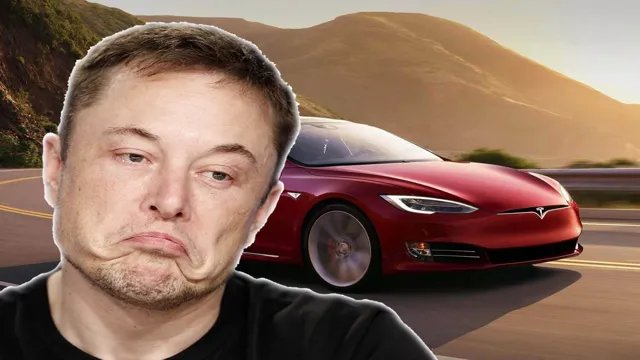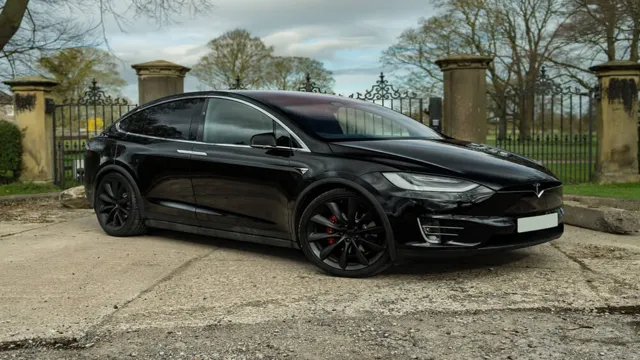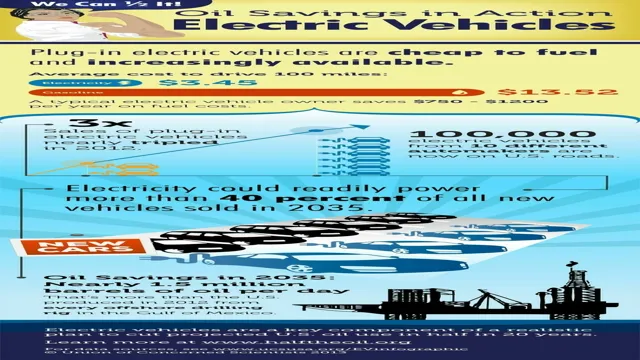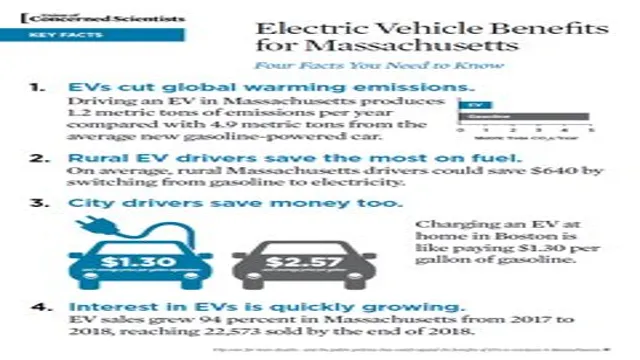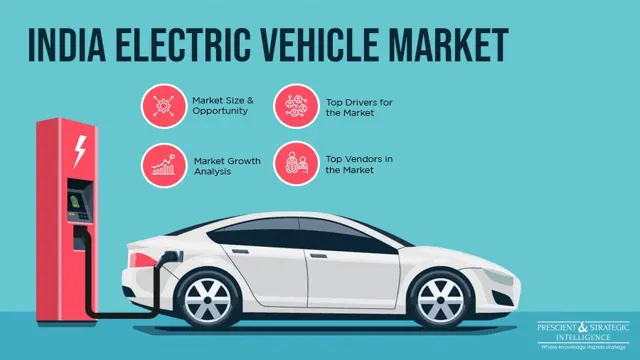Switching to Electric Cars: The Economic Impact – Can It Benefit or Hurt?
It’s no secret that electric cars have been rising in popularity in recent years, with more and more people opting for environmentally friendly, electric-powered vehicles over traditional gas-guzzlers. However, the benefits of electric cars go far beyond the environment. In fact, electric cars have the potential to significantly impact the economy, creating job opportunities and helping promote economic growth.
One of the primary ways electric cars can boost the economy is by creating new jobs. The shift towards electric vehicles means that there will be an increased demand for people with skills related to electrical engineering, battery production, and other related industries. This not only creates new jobs but also helps to support the economy by stimulating the growth of these industries.
In addition, electric cars can help reduce our reliance on foreign oil, which can have a significant impact on the economy. The less money we spend on importing oil, the more money we can keep within our own economy. This can lead to lower fuel prices and a boost in the economy.
Moreover, electric cars can help reduce healthcare costs associated with air pollution. Traditional gas-powered vehicles emit pollutants into the air, which can lead to health problems for individuals and contribute to healthcare costs. With fewer gas-powered vehicles on the road, there will be a reduction in these pollutants, leading to improved health outcomes and lower healthcare costs.
Overall, electric cars have the potential to create numerous economic benefits for individuals and society as a whole. From new job opportunities to reduced healthcare costs, the impact of electric cars extends far beyond the environment. As more people embrace this technology, we can expect to see a greater impact on the economy in the years to come.
Environmental benefits and cost savings
When it comes to electric cars, one of the most common questions people ask is whether they benefit or hurt the economy. While there are certainly costs associated with producing and purchasing electric vehicles, the environmental benefits they provide are undeniable. By shifting away from gasoline-powered cars, we can reduce our dependence on oil and cut down on harmful emissions that contribute to climate change.
In fact, according to a report from the Union of Concerned Scientists, the average electric vehicle in the United States produces less than half the global warming emissions of comparable gasoline-powered cars over its lifetime. These benefits extend beyond the environment, as well. As the technology becomes more mainstream, electric cars will become more affordable, providing an opportunity for consumers to save money on fuel costs over the life of their vehicles.
And as more electric cars are produced and sold, manufacturers will have to rely less on foreign oil, potentially reducing costs for consumers and boosting the economy. All in all, it’s clear that electric cars have the potential to provide significant environmental benefits and cost savings in the long run, making them a worthwhile investment for individuals and society as a whole.
Reduced emissions and pollution
Reduced emissions and pollution have become a major concern for individuals and businesses alike. Not only do high levels of pollution harm the environment, but they can also have negative impacts on human health and local economies. By implementing sustainable practices, businesses can reduce their environmental footprint and save money in the process.
For example, using renewable energy sources like solar or wind power can significantly reduce energy costs while also reducing greenhouse gas emissions. Additionally, fuel-efficient vehicles and transportation systems can further reduce pollution and improve air quality in densely populated areas. By investing in environmentally friendly practices, businesses can not only improve their bottom line but also contribute to a healthier and more sustainable future for everyone.
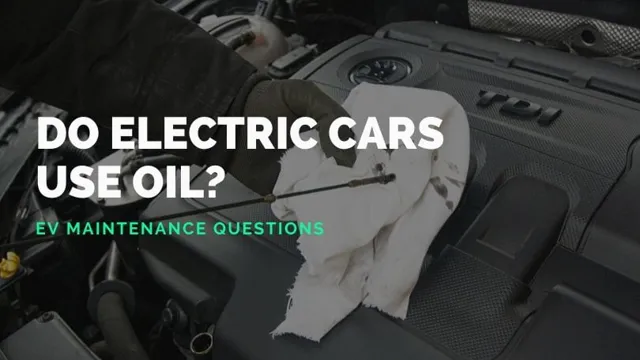
Lower fuel costs and maintenance expenses
Lower fuel costs and maintenance expenses are two reasons why electric vehicles (EVs) are not only good for the environment but also for your wallet. By relying on electricity instead of gasoline, EVs allow drivers to save money on fuel costs, which can add up over time. Additionally, EVs have fewer moving parts and require less maintenance compared to traditional gas-powered vehicles.
This means less money spent on oil changes, tune-ups, and other routine maintenance. In the long run, EVs offer both environmental benefits and cost savings, making them a smart choice for those looking to save money and reduce their carbon footprint. So, why not make the switch to an EV and start enjoying the benefits today?
Job creation and economic growth
Many people wonder whether electric cars are good or bad for the economy. The truth is that the benefits or drawbacks depend on various factors. One of the primary advantages of electric cars is that they can create new jobs and growth opportunities in the clean energy industry.
By switching from traditional vehicles to electric ones, many companies can produce new technologies, such as batteries or charging stations. These innovations will stimulate the economy and improve air quality in cities, leading to a healthier workforce and lower healthcare expenses. Moreover, electric cars reduce the reliance on fossil fuels, which can help to stabilize energy prices and reduce the trade deficit.
Nevertheless, electric cars can also cause some disruptions in existing sectors, such as car dealerships, auto repair shops, and gas stations, which may experience declining revenues and layoffs. Despite that, the shift to electric cars is inevitable, leading to a new generation of jobs and prospects for growth. Ultimately, the economy will benefit from electric mobility’s long-term reduction of carbon emissions and its contribution to sustainable development.
New jobs in the electric vehicle industry
With the rise of electric vehicles, there has been a significant increase in job creation and economic growth in the industry. As more and more car manufacturers shift their focus towards electric vehicles, they also require skilled workers to develop, manufacture, and service these vehicles. This has created a multitude of job opportunities for people with a background in engineering, manufacturing, sales, and maintenance.
In addition, the growth of the electric vehicle industry has led to the creation of new businesses that provide support and ancillary services such as charging infrastructure and battery recycling. Overall, the electric vehicle industry has been a catalyst for job creation and has contributed to the growth of local economies, making it a promising sector for career opportunities and economic development.
Increased demand for renewable energy sources
As the world continues to move towards a future that is more environmentally conscious, there has been an increased demand for renewable energy sources. The shift towards renewable energy has been a significant source of job creation and economic growth. Renewable energy projects have created numerous jobs in engineering, construction, and maintenance.
Moreover, the renewable energy sector has seen a rise in small business startups focusing on the development of new technologies. This increased demand for renewable energy has turned into a significant driver of economic growth, particularly in countries where fossil fuels have traditionally been the primary source of energy. Governments across the world have begun to prioritize investment in renewable energy infrastructure.
This investment not only creates job opportunities but also stimulates the economy by increasing access to affordable, clean energy. Ultimately, the increased demand for renewable energy sources has led to a win-win situation for both the environment and the economy.
Boost to local economies due to reduced oil imports
Reduced oil imports can provide a significant boost to local economies, resulting in job creation and economic growth. When countries rely heavily on oil imports, a large percentage of their GDP is spent on purchasing oil from other nations. However, with the introduction of alternative energy sources such as wind, solar, and hydro power, countries can reduce their reliance on oil imports, resulting in substantial savings.
This money can then be used within the country to create new jobs and stimulate growth. The development and maintenance of wind and solar power plants, for example, can employ many workers, from engineers and technicians to construction crews and maintenance teams. Additionally, the growth of new industries in the energy sector can attract investment and create new revenue streams for the country.
Alternative energy sources, therefore, have the potential to provide an incredible boost to local economies and promote sustainable growth in the long term.
Government subsidies and tax incentives
Electric cars have become much more prevalent on the roads today, and with that comes concerns about their impact on the economy. However, it seems that government subsidies and tax incentives have actually been beneficial to the economy. These incentives have encouraged the development and mass production of electric cars, ultimately creating jobs and boosting economic activity.
Additionally, the shift towards electric cars has also reduced our dependence on foreign oil, which has a positive impact on national security as well as the economy. While there may be some initial costs associated with implementing these incentives, the long-term benefits to the economy and the environment make them worthwhile. So in the end, it appears that electric cars ultimately benefit the economy.
Impact of subsidies on the economy
Government subsidies and tax incentives play a pivotal role in the economy by helping certain industries grow and thrive. It’s like a shot in the arm for businesses that need a boost. However, this approach can have some negative outcomes if not handled properly.
When government subsidies and incentives are overly concentrated in a single industry, it can create a distortion in the market, leading to inefficiencies and wasteful spending. Additionally, some argue that subsidies can give big businesses an unfair advantage, making it difficult for smaller businesses to compete. On the other hand, subsidies and tax incentives continue to serve as a crucial tool for governments worldwide in attracting and retaining businesses and creating job opportunities.
With proper regulation, the benefits of government subsidies can outweigh the possible drawbacks.
Effectiveness of tax incentives in driving electric car adoption
Government subsidies and tax incentives have played a significant role in increasing electric car adoption in recent years. These measures help make electric cars more affordable for consumers, reducing the overall cost of ownership and creating a more attractive value proposition compared to traditional gas-powered vehicles. In addition, these subsidies and incentives also provide a signal to automakers and suppliers about the potential opportunities for investing in electric vehicle technology.
This helps build momentum in the market, creating a virtuous cycle of increased adoption, which in turn lowers costs further. While some critics argue that these measures are expensive and unfair to taxpayers, the evidence suggests that they are an effective tool in driving the transition towards a more sustainable and green transportation system. By incentivizing the adoption of electric cars, governments around the world are helping to reduce harmful emissions, save consumers money, and accelerate the growth of a critical sector of the global economy.
Challenges and drawbacks
When it comes to electric cars, the benefits and drawbacks to the economy are a contentious topic. On one hand, increased adoption of electric vehicles can create new jobs in the manufacturing, sales, and maintenance of EVs and their components. Additionally, the reduction in reliance on foreign oil can improve national security and decrease trade deficits.
However, the shift away from traditional fossil fuel-based vehicles can also negatively impact industries such as oil and gas, resulting in job losses and economic disruption. Additionally, the high upfront cost of electric cars can make them financially out of reach for many consumers, hindering widespread adoption. The overall impact of electric cars on the economy is complex and multifaceted, with both positives and negatives to consider.
Nonetheless, as technology improves and production costs decrease, EVs are likely to become more accessible to the wider population, paving the way for a more environmentally friendly future.
Initial high cost of electric vehicles
Electric vehicles have come a long way in recent years, but one major challenge that still plagues them is their initial high cost. Despite the many advantages of EVs, such as lower fuel costs and a reduced carbon footprint, the price tag can be a significant hurdle for many people. This is especially true for those who are used to buying gasoline-powered cars and are hesitant about investing in a new technology.
However, it’s important to keep in mind that EVs have a lower cost of ownership over time, as they require less maintenance and have lower fuel costs. Additionally, some governments offer incentives such as tax credits and rebates to help offset the initial cost. While the high price may be a deterrent for some, it’s important to consider the long-term benefits and explore options for financing or leasing to make it more manageable.
Impact on the oil industry and related jobs
The impact of the shift towards renewable energy sources on the oil industry and related jobs cannot be ignored. While renewable energy sources such as wind and solar power offer a cleaner and more sustainable future, there are challenges and drawbacks to consider. One of the most significant challenges is the potential loss of jobs in the oil industry.
As the demand for oil decreases, companies may need to lay off workers or reduce their workforce, which will have a significant impact on the employees and their families. Additionally, the transition towards renewable energy sources requires substantial investments and infrastructure development, which may not be feasible for smaller companies or those with limited financial resources. Despite these challenges, the shift towards renewable energy is essential for the future of our planet, and governments and companies must work together to support the transition while also providing support to affected workers.
Conclusion
In the grand scheme of things, electric cars have the potential to both benefit and hurt the economy. On one hand, they can reduce our dependence on foreign oil and decrease greenhouse gas emissions, leading to a cleaner environment and potentially saving billions in healthcare costs. On the other hand, they may disrupt the current automotive industry and lead to job losses in oil and gas sectors.
However, as technology advances and the demand for electric cars increases, it is important to remember that change is inevitable and adapting to a sustainable future is crucial for both our economy and our planet. So let’s rev up those electric engines and drive towards a brighter, greener tomorrow!”
FAQs
What are the economic benefits of electric cars?
Electric cars can benefit the economy by reducing the country’s dependence on foreign oil, creating jobs in the clean energy sector, and potentially reducing healthcare costs associated with air pollution.
Are there any negative economic impacts of electric cars?
Some critics argue that the production and disposal of batteries for electric cars could have negative economic and environmental impacts. Additionally, the shift towards electric cars could potentially result in job losses in the traditional automotive industry.
Do electric cars have a lower total cost of ownership compared to gas vehicles?
Yes, electric cars typically have a lower total cost of ownership over the vehicle’s lifetime due to lower fuel and maintenance costs. This can provide economic benefits for consumers and businesses that choose to switch to electric cars.
What is the potential impact of government incentives and policies on the economic benefits of electric cars?
Government incentives and policies, such as tax credits, subsidies, and infrastructure investments, can significantly impact the economic benefits of electric cars. These policies can drive consumer demand, create jobs, and support the growth of the clean energy sector.
